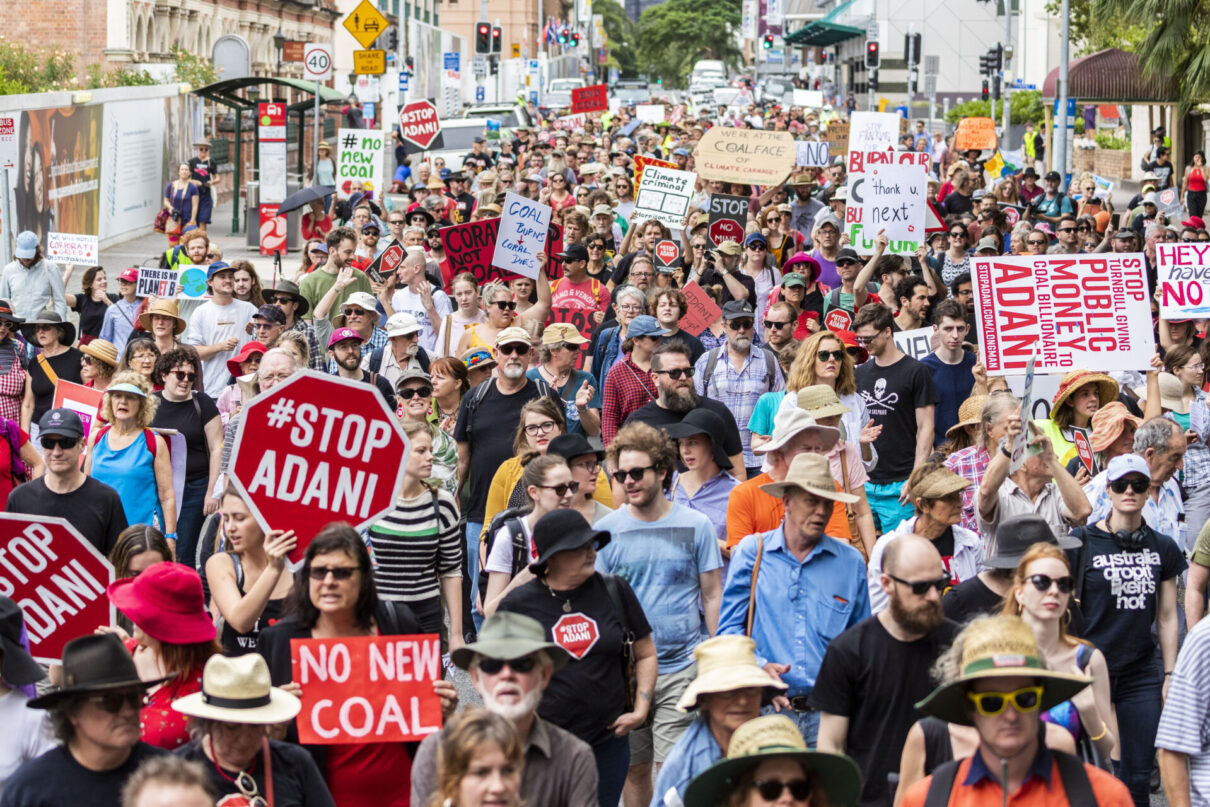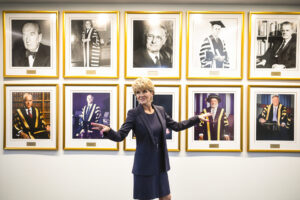In 2025 it will be 10 years since most Australian news consumers first heard the name Adani.
While the proposal for the enormous Adani coal mine had been around for a few years, it was in 2015 that the mine’s federal approval was overturned because of the little-known yakka skink.
The small reptile’s court victory, assisted by humans at the Mackay Conservation Group and the Environmental Defenders Office, not only propelled the skink into the headlines and political cartoons but also sent the Abbott government berserk, from the PM down.
The Australian government proceeded to not only work around the court loss but, in treasurer Joe Hockey’s words, to do “everything we can to help get the Adani mine open”. The mine produced its first coal in late 2021.
As 2024 drew to a close, the name Adani was back in Australian headlines, this time because authorities in the United States issued an arrest warrant for company founder Gautam Adani, accusing him of bribing Indian government officials with hundreds of millions of dollars. The US accusations come on the back of major allegations of fraud and stock market manipulation, not to mention a long history of environmental, human rights and tax scandals.
Over the past decade, successive governments swept Adani’s record of scandals under the carpet. But with the FBI now involved, it seems like a good time to look back at 10 years of powerful Australians doing favours for a company accused of some very serious offences.
Best-known was the proposal for a $1 billion subsidised loan to the company via the Northern Australia Infrastructure Facility. Following the yakka skink court case, first Mr Hockey, then minister Josh Frydenberg supported the idea of using the new facility to finance Adani’s rail line.
But the $1 billion loan idea really came to life under the then minister for resources, minister for northern development and general fan of coal mining, Matt Canavan. While insisting that facility was run independently, Canavan regularly came out in favour of the loan. In late 2016, the Courier Mail reported that Adani’s loan had “conditional approval” and was “repeatedly championed” by Canavan.
The loan never happened. The facility’s governance and resourcing were so poor that it attracted scandal nearly as fast as Adani itself. Through much of 2016, the organisation had fewer than 10 staff to oversee $5 billion of public money. Applicants initially applied for funding via a comical online form that asked for just a name, email and “message”. Queensland premier Anastasia Palaszczuk eventually vetoed the loan in, as usual, controversial circumstances.
Barnaby Joyce. It’s hard to believe it’s taken this long for him to get a mention, but here he is at last.
Deputy prime minister Joyce supported the loan to Adani, of course, but he and trade minister Steve Ciobo went much further. On Adani’s request, they wrote to the Chinese government to help secure Chinese money for the Adani mine. Adani’s request was discussed by some of Australia’s most senior diplomatic officials-including the high commissioner to India, the ambassador to China, and Australia’s ambassador for the environment.
Despite the diplomatic heavy hitting, the China loan also fell over for Adani, as did engagement with Korean government banks by Australian diplomats, also at Adani’s request.
It wasn’t just ministers and bureaucrats that lined up to bat for Adani. Private sector companies were also heavily involved.
Consultants PricewaterhouseCoopers, now also synonymous with scandal, managed to work for Adani applying for the facility loan, and also to consult for the facility on governance … at the same time.
Consultants GHD were behind Adani’s long-running claim that its mine would create 10,000 jobs. This number became like a mantra for coal supporters, repeated even by prime minister Malcolm Turnbull.
In late 2015, Adani was headed to court again and GHD’s analysis was going to be part of the case. Knowing it didn’t stack up, Adani ditched GHD and hired new economists from ACIL Allen. ACIL threw GHD under the bus, telling the Queensland Land Court that the mine would result in 1400 jobs, not 10,000.
But ACIL had plenty of other numbers for Adani. They told the court that the mine would pay $434 million in tax in 2023, a claim the court accepted. We can now look at Australian Tax Office statistics that show Adani paid zero tax in that year, and that all Adani entities in Australia have only ever paid $4 million in company tax on $4.7 billion in income.
Why did so many powerful Australians spin and bend over backwards for such a dodgy company? And why are they not held to account?
(For example, journalists have not asked Matt Canavan anything about the bribery allegations despite his links with Gautam Adani, and Canavan giving a 10-minute radio interview just days after the scandal broke.)
The answers become apparent if we think about Adani and its enablers not as the problem itself, but instead as symptoms of a more fundamental crisis – the critical lack of integrity in Australian public and private institutions.
The governments, agencies and companies that failed the public on Adani are also failing us on many other fronts – giving away gas exports, AUKUS, profiteering companies driving up prices, etc.
Great countries are built on great institutions, and Australia needs to spend 2025 getting its key institutions in order. Most obviously, 2025 brings an opportunity to install a federal parliament that can fix and strengthen other institutions like the National Anti-Corruption Commission, the Reserve Bank, the ABC and the Environment Department.
A new parliament can’t fix everything, but it can set the tone for what is acceptable and what is not.
Ministers hustling loans for coal companies. Species sacrificed for tax-shy multinationals. These were OK in the majority LNP government of 2015, but it is hard to imagine them happening if the next parliament features integrity-focused independents in influential positions.
Regardless of elections and institutions, the name Adani seems unlikely to disappear from Australian headlines for a few years yet.
Between the Lines Newsletter
The biggest stories and the best analysis from the team at the Australia Institute, delivered to your inbox every fortnight.
You might also like
Adani selling coal to India at mates rates, costing Queenslanders $400 million
Queensland taxpayers have missed out on almost $400 million because Adani sold coal at mates rates to Indian customers, according to new research by The Australia Institute.
ANU’s latest scandal shows us why transparency is so important, and where to start
Governance at Australia’s universities is in a dire state.
Scandal-plagued and unaccountable – Australian universities slide down world rankings
Australia’s scandal-plagued university sector has today suffered another significant blow, with many slipping further down the QS World University Rankings. The rankings of 70% of Australian universities have fallen, following revelations about a lack of accountability and scrutiny, poor financial management, exorbitant Vice-Chancellor salaries and lavish spending on consultants and corporate travel. The Australia Institute has suggested an



